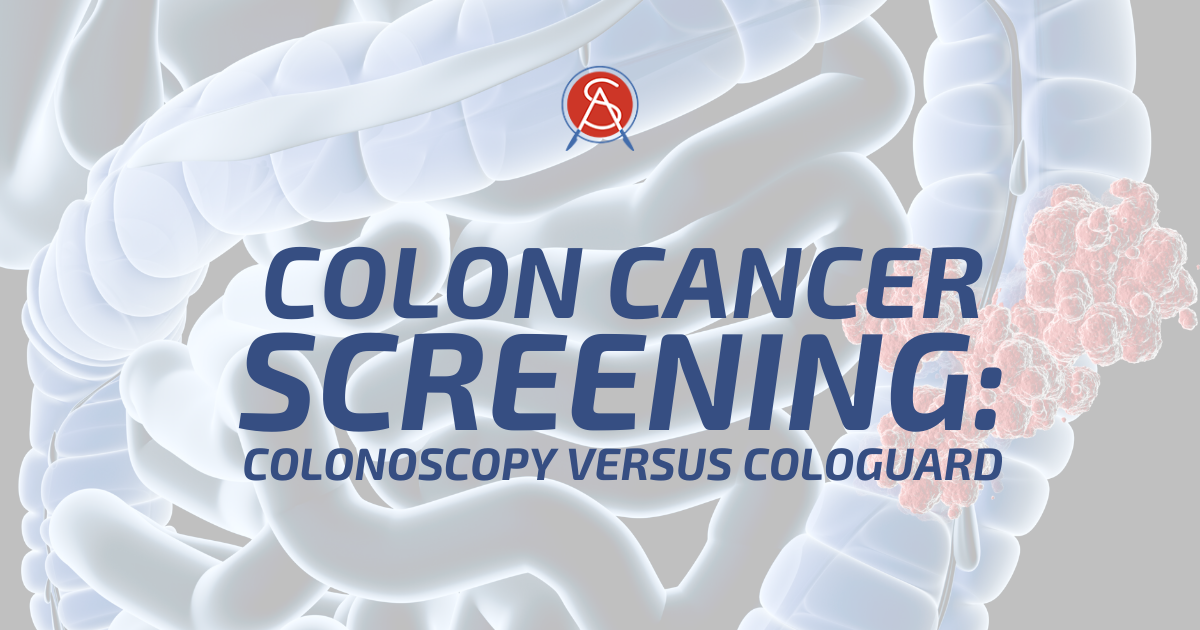Colonoscopy. The dreaded, but necessary exam that we all know we will eventually have to take. But why is colon cancer screening so important? First, colorectal cancer is the third most prevalent cancer in the United States and the incidence is only going to rise as our diets continue to include processed foods and other detrimental dietary choices for our gut health. Further, colon cancer is also one of the most detectable and preventable cancers today. Much like breast cancer, a national consciousness of colon cancer screening has improved detection rates and has consequently saved hundreds of thousands, if not millions, of lives over the past several decades.

However, you still need that uncomfortable colonoscopy experience… Or do you?
Bearing in mind that patients do not want to take the day off to be put under anesthesia and have their colon checked, a product known as ColoGuard allows for an at-home stool analysis test that is prescribed by your doctor, taken home, and sent out for results. ColoGuard looks for blood in the stool as well as DNA markers that are typical of colon cancer. The result is either positive or negative for cancerous or precancerous activity…and that’s that.
So, if this is so easy, why doesn’t everybody use it?
First, ColoGuard is only appropriate for patients with a normal risk of colon cancer. That excludes patients who have had related cancers in the past, those who have close family members with colon cancer, and those with a medical history of colon cancer or who have other significant risk factors.
Second, is the accuracy of the test. It is estimated that up to 10% of all tests come back as a false positive. This means that the test detected precancerous or cancerous activity, but, in fact, there is none. Of course, beyond the exceptional stress that a patient will experience while waiting for the final diagnosis, a false positive will also require a colonoscopy and further diagnostics.
More serious, but fortunately also rarer, is the potential for a false negative. Of course, this is when the test comes back clear, but there is precancerous or cancerous activity in the colon. These are very unfortunate situations, because patients normally rely on the ColoGuard test alone if there is a negative result. However, a false negative would allow precancerous lesions to potentially become cancerous or for cancer to spread. So, what’s the verdict?
Unquestionably, stool-based colon cancer tests can be useful in patients that absolutely refuse to undergo a colonoscopy and have low-to-normal risk for developing colon cancer. After all, screening of any kind is better than none at all. However, there is nothing quite like a colonoscopy, which allows your doctor to fully visualize the large intestine and make a diagnosis that is more informed. Further, if during the colonoscopy, we do find any polyps, those can be removed during the same procedure. As with any major health decision, we encourage you to contact our office and discuss the potential options that may be best and most prudent for your medical situation.


